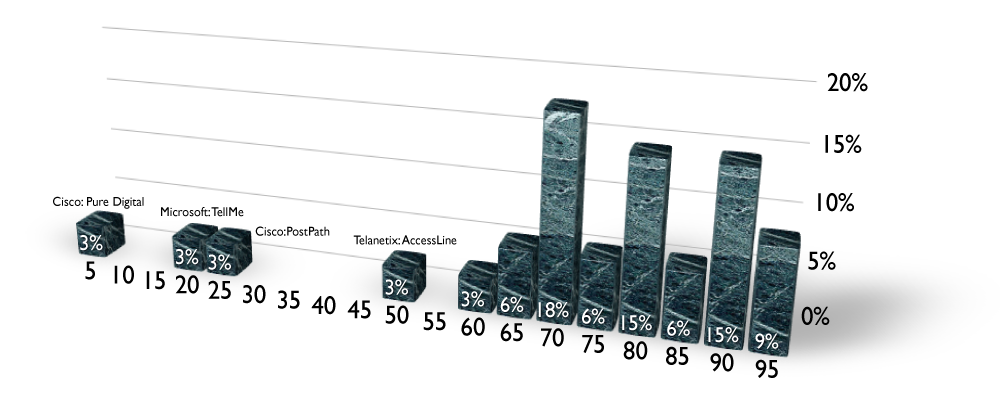This complicates Cisco’s acquisition since it is clear they will not get the required 90% shareholder approval by November 9.
- Cisco has the cash. With a large and liquid balance sheet ($44B in current assets) Cisco can afford it.
- Buying TANDBERG is the fastest way for Cisco to achieve its strategic goal of $1 billion in revenues for telepresence within 3 years (in fact they’ll be there when this transaction is completed).
- There are no other potential buyers for TANDBERG (other than Private Equity firms which expressed interest in acquiring TANDBERG last year who would then try to sell it to Cisco for a 2x or 3x premium), so the choice is to complete the deal at a slightly higher price ($0.5-1 billion more ought to cover it) or to let TANDBERG continue as an independent company and independent competitor to be acquired at some future time.
- The possibility of c is a particularly good reason to raise the price as Cisco has now acknowledged their own flawed product portfolio and spoke about how the integrated organization will strengthen value for customers. It’s worth a couple of hundred million dollars to Cisco to avoid the embarrassment of trying to explain to customers why it was worth $3 billion but not $4 billion.
Although we expect Cisco to sweeten the deal (after all, even Larry Ellison and Oracle sweetened their many deals when target companies balked at the initial offer), Cisco may choose to let the deal collapse in the shareholder vote. This line of thinking is based on the flawed calculation that TANDBERG’s stock price will collapse and Cisco could come back in 3 months with an even smaller offer – a la Microsoft-Yahoo (which of course never closed).
Cisco shareholders didn’t even blink at this deal (or at the Starent deal for that matter) signaling that (sadly), the company is no longer a growth company, but is instead like its other 1980s behemoth peers, a utility stock.
TANDBERG is a complete company where Cisco value add is actually very small. Historically, Cisco acquired tiny companies with no channel and then sold their wares through the highly advanced Cisco channel generating hundreds of millions of dollars of sales. Today, however, that model doesn’t work any more. $100 million in sales is great for a tiny company with only $3 million before acquisition, or for the parent with $1 billion in sales, but it’s rounding error for a behemoth that is Cisco today. TANDBERG shareholders really don’t need the deal since TANDBERG is the leader in the market they serve, and since the premium is so small.
Don’t be surprised if TANDBERG stock gets to 11% higher anyways by the end of the 1H 2010 without the offer. Their technology and channels are on a real tear.
From my vantage, I have to say that not sweetening the deal may do the opposite of what Cisco hopes it will do. It doesn’t frighten the TANDBERG shareholders and in fact, may signal to Cisco shareholders that the company that John built is too big to manage and needs to be broken up to unleash the value hidden by the conglomerate structure.









